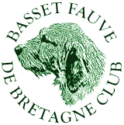Health
 As a Club we seek to monitor health issues that are experienced by Fauves. Records indicate the breed does not suffer from any known prevalent hereditary conditions. However, to keep our breed healthy we need to remain vigilant. Most reported conditions are generally accepted as being non-hereditary and of a type that can impact all canines in general; but hereditary disease can spontaneously occur. By collecting as much information as possible, all Fauve owners and breeders can help to keep the breed as healthy as possible. Please contact the club’s Health Coordinator (details available on the Committee page of the website) with the as much information as possible if you think or know your Fauve has a health condition. All information will be treated in confidence and in accordance with the Club’s Privacy Policy.
As a Club we seek to monitor health issues that are experienced by Fauves. Records indicate the breed does not suffer from any known prevalent hereditary conditions. However, to keep our breed healthy we need to remain vigilant. Most reported conditions are generally accepted as being non-hereditary and of a type that can impact all canines in general; but hereditary disease can spontaneously occur. By collecting as much information as possible, all Fauve owners and breeders can help to keep the breed as healthy as possible. Please contact the club’s Health Coordinator (details available on the Committee page of the website) with the as much information as possible if you think or know your Fauve has a health condition. All information will be treated in confidence and in accordance with the Club’s Privacy Policy.
The club does not give veterinary advice. Please seek professional advice from your veterinarian.
How do I share health information about my Fauve?
The Club encourages & welcomes your assistance in gathering information regarding the general health & well-being of Fauves in the UK. The information provided will be held in accordance with the Club’s Privacy Policy. Thank you for your help.
The Online Health Report Form is this the quickest & easiest way to report your case. Please click on the link below to access the online form.
If you prefer you can download & complete the Offline Health Report Form & return it to the Club’s Health Coordinator via email at [email protected]
or via post to Fauve Health, 76 Main Road, Drax, Selby, Yorkshire, Y08 8NT
Primary Open Angle Glaucoma (POAG)
Primary Open Angle Glaucoma (POAG) in the Basset Fauve de Bretagne is thankfully a rare condition. POAG is caused by a small increase in the fluid pressure within the eye and gradually results in blindness. There are multiple mutations that have been associated with the clinical symptoms of POAG. POAG-4 is a mutation currently thought to be uniquely found in the Basset Fauve de Bretagne.
The disease is described as autosomal-recessive. This means that a dog must inherit two copies of an abnormal gene (one from its mother and one from its father) before its health is affected. Fortunately, there is a DNA test available and with responsible breeders availing of it affected Fauves can be avoided.
The club recommends all breeding Fauves are DNA tested.
A DNA tested Fauve will have one of the following three possible results:
CLEAR
The dog does not have any copies of the abnormal gene associated with the disease. The dog is highly unlikely to be clinically affected and will only pass on a normal copy of the gene to a puppy.
CARRIER
The dog has one copy of the normal gene and one copy of the abnormal gene associated with the disease. The dog is highly unlikely to be clinically affected, but may pass one copy of the normal gene, or one copy of the abnormal gene on to a puppy.
AFFECTED
The dog has two copies of the abnormal gene associated with the disease. The dog will likely be clinically affected by the disorder and will pass one copy of the abnormal gene on to any potential offspring.
Where a Sire (Father) and Dam (Mother) have been tested, and they are both CLEAR, the Kennel Club record for their progeny will be automatically assigned HERIDITARY CLEAR status.
Results of Fauves DNA tested from October 2023 for POAG will be automatically submitted to the Kennel Club and stored on the Fauve’s Kennel Club record provided a laboratory on the Kennel Club list is used. Results will also be published in the Kennel Club’s quarterly Breed Records Supplement.
For Fauves DNA tested for POAG prior to October 2023 the onus is on the owner to submit the test results to the Kennel Club via email at: [email protected]
More information on POAG is available from the Kennel Club.
